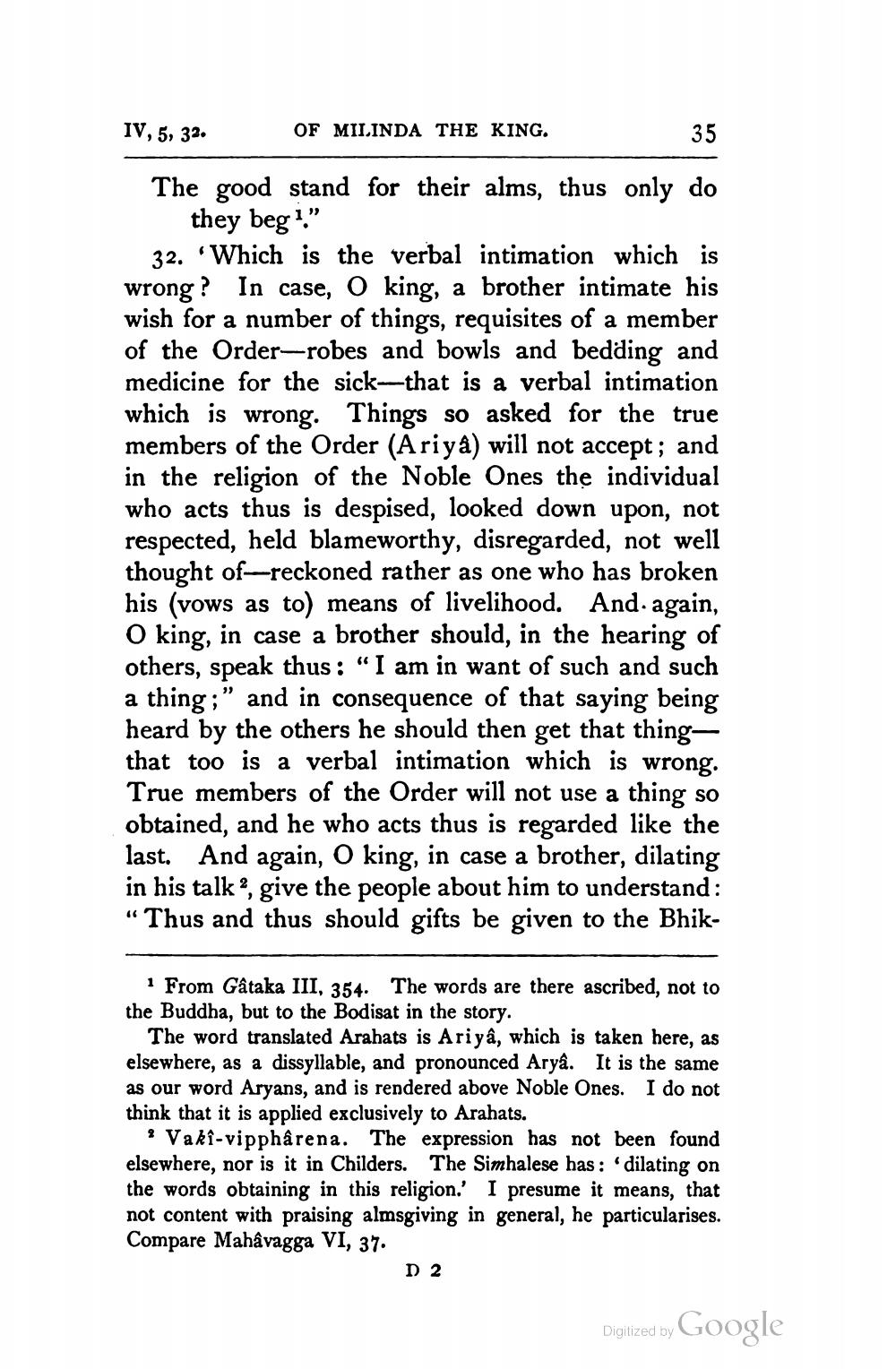________________
IV, 5, 32.
OF MILINDA THE KING.
35
The good stand for their alms, thus only do
they beg ?." 32. Which is the verbal intimation which is wrong? In case, o king, a brother intimate his wish for a number of things, requisites of a member of the Order-robes and bowls and bedding and medicine for the sick-that is a verbal intimation which is wrong. Things so asked for the true members of the Order (Ariya) will not accept; and in the religion of the Noble Ones the individual who acts thus is despised, looked down upon, not respected, held blameworthy, disregarded, not well thought of-reckoned rather as one who has broken his (vows as to) means of livelihood. And again, O king, in case a brother should, in the hearing of others, speak thus: “I am in want of such and such a thing ;” and in consequence of that saying being heard by the others he should then get that thingthat too is a verbal intimation which is wrong. True members of the Order will not use a thing so obtained, and he who acts thus is regarded like the last. And again, O king, in case a brother, dilating in his talk?, give the people about him to understand: "Thus and thus should gifts be given to the Bhik
1 From Gataka III, 354. The words are there ascribed, not to the Buddha, but to the Bodisat in the story.
The word translated Arahats is Ariyâ, which is taken here, as elsewhere, as a dissyllable, and pronounced Arya. It is the same as our word Aryans, and is rendered above Noble Ones. I do not think that it is applied exclusively to Arahats.
2 Vaki-vipphârena. The expression has not been found elsewhere, nor is it in Childers. The Simhalese has : 'dilating on the words obtaining in this religion.' I presume it means, that not content with praising almsgiving in general, he particularises. Compare Mahâvagga VI, 37.
D 2
Digitized by Google




